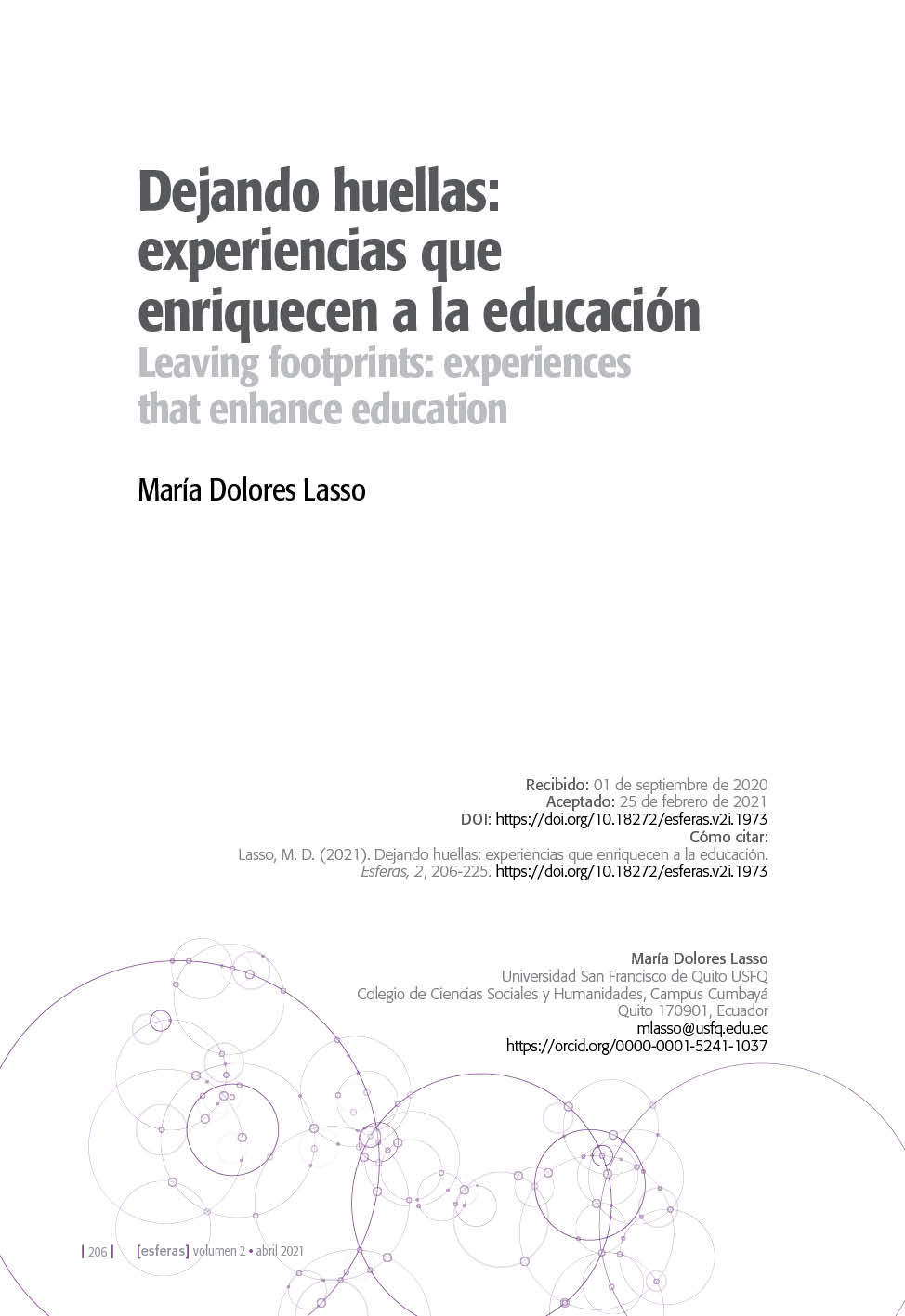Leaving footprints: experiences that enhance education

Published 2021-04-06
Keywords
- educational enrichment,
- Sustainability in community outreach,
- Leadership renewal,
- Volunteering,
- Voice in education
- Teacher training ...More
How to Cite
Abstract
Being an educator is much more than sharing knowledge in the classroom, and being a trainer of educators demands a commitment to education that goes beyond the educational setting. Each educator much lead opportunities to strengthen educational processes in the community, ensuring that those initiatives endure to have an impact on the formation of future generations [1]. The purpose of this project is to improve the educational potential of children from vulnerable populations through a yearly Summer Camp run by student volunteers from the Education undergraduate program at Universidad San Francisco de Quito USFQ and student volunteers from University of Michigan. Six summer camps have taken place so far where the participant children and volunteer tutors have both learned from each other. This essay seeks to share the successes and opportunities that have allowed this community outreach project to endure over time, enriching the learning experiences of economically challenged children and future educators. This essay describes how the experiences of the different participants in the project make visible those elements that have made this project last in time and how the continuous improvement process is consistently active through the use of participants"™ feedback and previous experiences. This essay presents the roles of each group of participants, the activities that they conduct to ensure that they serve the project"™s purpose, and the ways in which the voices of all the people involved inspire changes and adaptations based on the needs of the participant children and student volunteers from both universities. The sustainability of the project is embedded in three essential elements: commitment to leadership from the person in charge of the project; a structured fundraising process to cover expenses; and an efficient volunteer leadership renewal method established in both universities. The final part of the essay shares the challenges that the project faced during 2020. The implementation of similar projects in other contexts is being considered once the post-pandemic situation is stabilized. This essay is expected to motivate all educators to create projects to improve the educational experiences of those in need of them the most.
Downloads
References
- Darling-Hammond, L., & Bransford, J. (2005). Preparing Teachers for a Changing World. San Francisco, CA: Jossey Bass.
- Boulay, M. (2016). Summer Matter: 10 Things Every Parent, Teacher, and Principal Should Know about June, July, August. CreateSpace Independent Publishing Platform. Recuperado de: http://ecoed.wikispaces.com/file/view/Revolutionizing_Education__Youth_Participatory_Action_Research__Critical_Youth_Studies_.pdf
- Robalino, M. (2005). Passive Bystanders or Active Participants. Regional Education Project for Latin America and the Caribbean, 1, 6-23. Recuperado de: http://unesdoc.unesco.org/images/0014/001446/144666e.pdf
- Cochran-Smith, M. (2004). Walking the Road. New York, NY: Teachers College Press.
- Cochran-Smith, M. y Zeichner, K. M. (2013). Studying Teacher Education. New York, NY: Routledge.
- Korthagen, F., Loughran, J., & Russel, T. (2006). Developing fundamental principles for teacher education programs and practices. Teaching and Teacher Education. 22(8), 1020-1041. Recuperado de: http://www.sciencedirect.com/science/article/pii/S0742051X06000618
- Haberman, M. (1991). The pedagogy of poverty versus good teaching. Phi Delta Kappan, 92(2), 81-87.
- Ayers, W., Quinn, T. & Stovall, D. (Eds.) (2009). Handbook of Social Justice. New York: Routledge.
